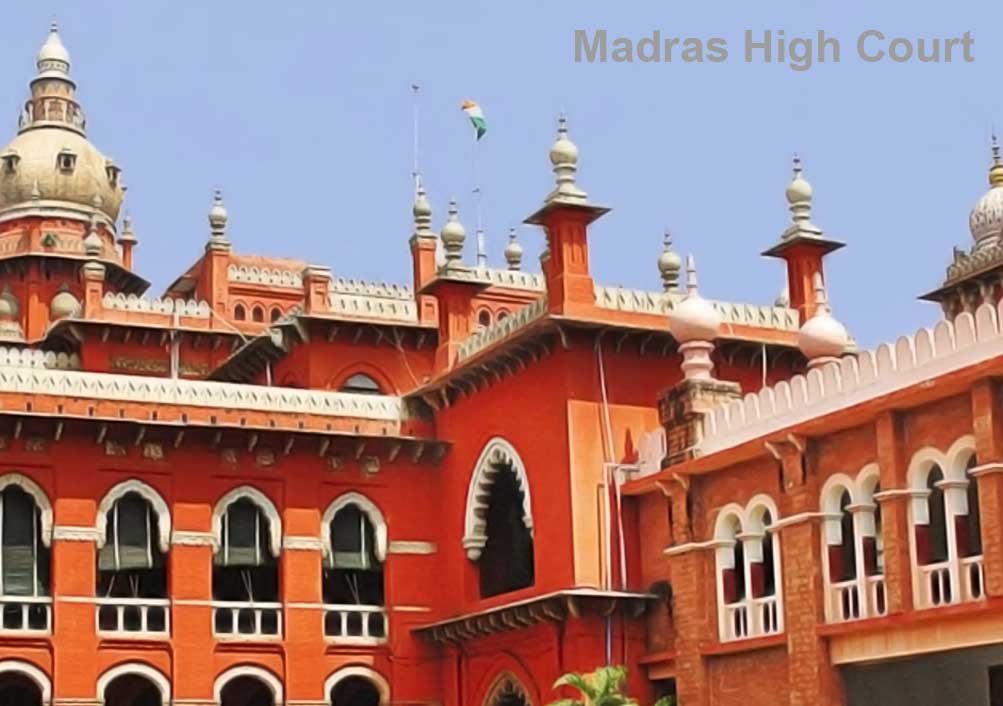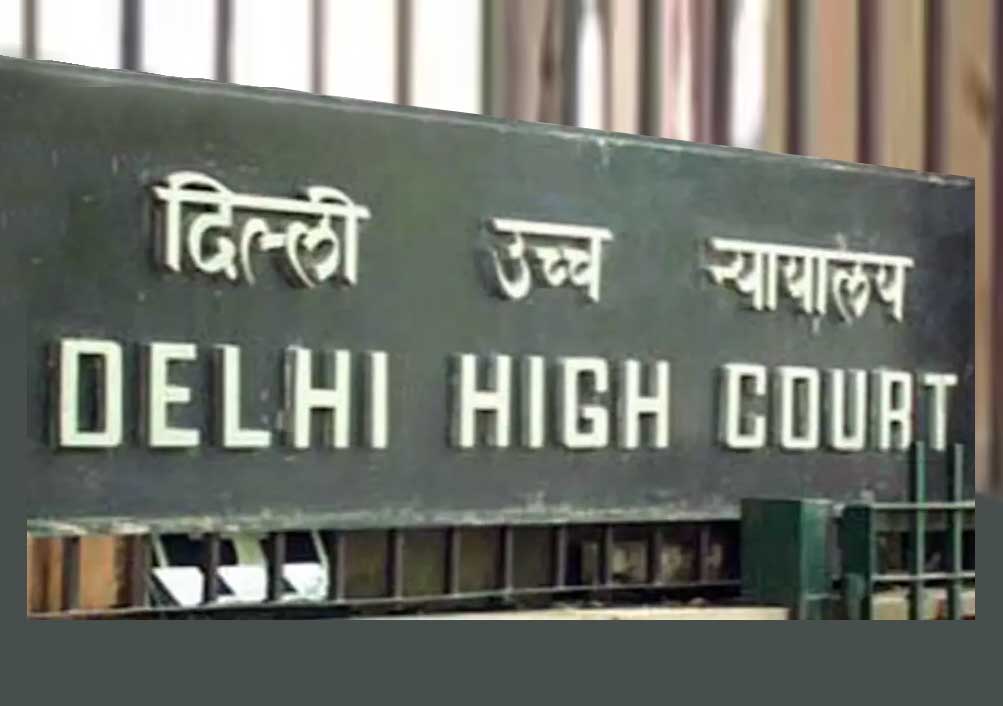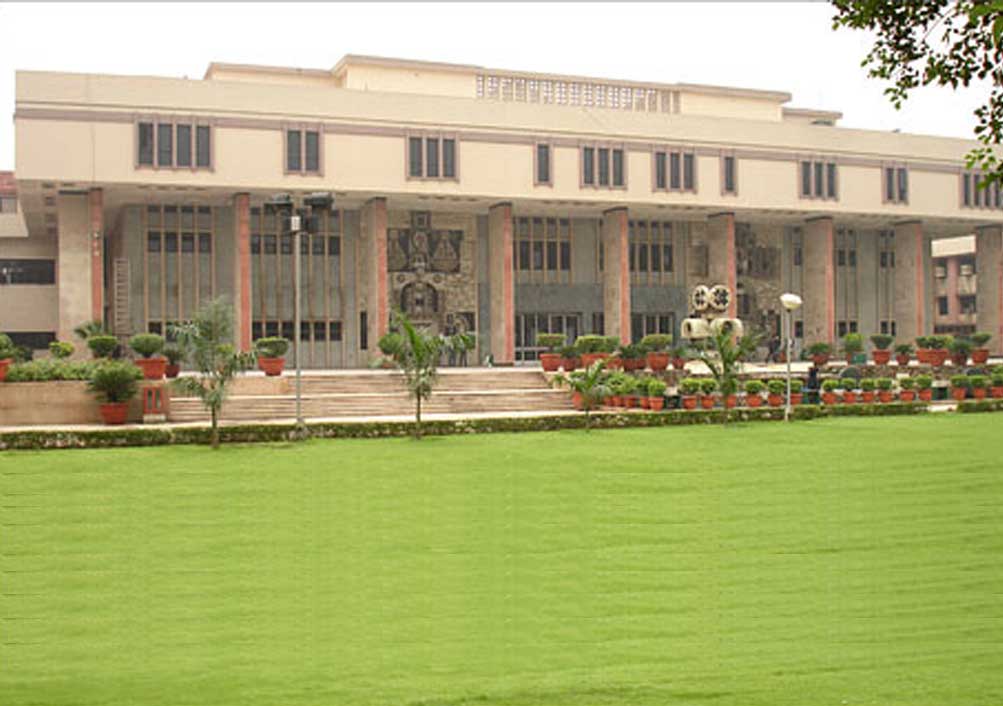In W.P. (MD) 11599 of 2023- MADR HC- ‘Losing a job, that too after serving for more than 10 years would be stressful and can impact several aspects of life’: Madras High Court advices petitioners to move Top Court to direct Tamil Nadu Govt to allow them to continue as Veterinary Assistant Surgeons with regular time scale of pay, without retirement & terminal benefits
Justice S. Srimath [02-06-2023]

Read Order: Dr. V. Selvendran v. The Government of Tamil Nadu
Simran Singh
New Delhi, June 7, 2023: The Madras High Court stated that it would be appropriate for the petitioners to approach the Supreme Court to direct the respondent to allow them to continue in the post of Veterinary Assistant Surgeon with pay protection (regular time scale of pay) till the date of their retirement on attaining the age of superannuation, without retirement and terminal benefits. The High Court further opined that the present 20 writ petitioners, and any persons above the age of 45, ought to be considered for continuing in service until their retirement with only time scale of pay without any retirement and terminal benefits. Until the outcome of the results before the Supreme Court, the present petitioners may be allowed to continue in service, the Court held.
The Single-Judge Benchof Justice S. Srimath stated that “Losing a job, that too after serving for more than 10 years would be stressful in many ways and can impact several aspects of life. It not only leads to uncertainty, financial loss, job search stress but also impacts self-esteem negatively and in many cases trigger identity crisis. Such can be the impact that a person may feel uncomfortable mingling with other people, attending social events or even talking to their family members fearing judgment from them. Prolonged unemployment can even be more devastating as after remaining jobless for a considerable period of time, a person becomes hopeless, pessimistic and demotivated which over a period of time can affect their personality.”
In the matter at hand, the petitioners had acquired B.V.Sc., degree and registered their names in the Professional Executive Employment Exchange. During the year 2011, the Government appointed 843 Veterinary Assistant Surgeons through the same Employment Exchange in accordance with Rule 10 (a) (i) of the State Subordinate Service Rules. The petitioners were under the impression that they would be regularised upon clearing the Special Qualifying Examinations that would be conducted by Tamil Nadu Public Service Commission.
Unfortunately, a common notification was issued calling candidates from open market to participate in the competitive examination which was the subject matter of the present writ. The petitioners had preferred an interim application before the Supreme Court for suitable relief enabling regularisation of service after obtaining concurrence from the Tamil Nadu Public Service Commission. However, the Supreme Court declined to accept the said proposal of the petitioners and other 573 similarly placed persons.
It was case of the petitioners that they had demonstrated and established the eligibility and suitability for regular appointment by their actual and physical services put in for more than a decade. It was contended that they were at a more disadvantageous position, where they had to compete with youngsters, that too after the change in curriculum for more than two times and lack of time for theoretical preparation, in view of continuous services in the said post resulting in depriving them from a ‘Level Playing Field’.
It was further submitted that in view of the fact that the notification was issued beyond the time limit prescribed by the Supreme Court, there were other infirmities as well such as the sudden introduction of Tamil eligibility test etc., which would cause serious prejudice to the in-service candidates. The petitioners came up with a new proposal that they ought to have been permitted to continue in the said post till their retirement and be eligible only for time scale of pay without any terminal benefits and pensionary benefits.
The respondents represented by the Additional Advocate General submitted that the notification of the Government was to regularise the petitioners’ services. Hence, the claim of the petitioners was considered and the Government had filed a miscellaneous petition before the Supreme Court to regularise their services. However, the Supreme Court declined the proposal of the Government as well as declined the prayer of the writ petitioners and had taken into consideration the fact that since the petitioners were in service for more than 10 years the Government was directed to give weightage to the writ petitioners. Hence, a policy decision was executed as per the said direction to grant 50 marks to the in-service candidates and also granted age relaxations.
In response to the aforementioned, the petitioners submitted that even though 50 marks were granted to the inservice candidates, the syllabus had changed for two times. Therefore, the petitioners would not be in a position to compete with the youngsters. Moreover, there was a lack of time to prepare from the new syllabus due to their continuous service in the post and therefore not granted sufficient time to prepare for theory as well as practical and hence, there was difficulty in passing such examination.
The respondents relied upon the judgment rendered by the Supreme Court, wherein it was stated that
“…(ii) As far as 573 appointees under Rule 10A (many of whom are appellants before this Court) are concerned, we are of the view that they should not be permitted to be regularized in the manner proposed by the State. However, we grant the relief in the following manner:
- the appellant-State in Civil Appeal Nos. 4353-54/2016 will proceed to notify vacancies including the vacancies held by the appellants before us as also all the Rule 10A appointees.
- the appointees under Rule 10A will be granted the benefit of upper age relaxation so that they are entitled to apply and be considered with anybody else who is eligible to apply and applies.
- the appointees under Rule 10A including the appellants before us will be afforded weightage of marks towards weightage of experience in the selection process. The weightage will consist of marks at the rate of 5 marks for every year, which is subject to a maximum of 50 marks……”
The Court stated that when the Supreme Court had issued a direction after considering the plight of the 573 candidates, there was no question of modifying the said direction issued by the Supreme Court on this issue. “When the respondents have come out with a policy decision to grant 50 marks for the in-service candidates, now the petitioners would be in a better position compared to the youngsters from open market.” Therefore, the Court was of the considered opinion that the petitioners would compete in the examination since granting the weightage of 50 marks, if the in-service candidates were passed, would enable them continue in the service.
However the petitioners submitted that the Government may consider to retain the 20 writ petitioners alone, if they failed in the examination and that they may pay the salary alone (time scale of pay) who would give up the retirement and terminal benefits. "Since some of the petitioners were more than 50 years, at this age they cannot seek any public employment. They are having family to support, they have to support the elders, some of the writ petitioners’ children are studying. Moreover, if at this age they lose their job, it would have social stigma to the entire family…this concession would be beneficial to the Government also, since the Government would be benefited financially, since the said 20 writ petitioners are given up their terminal and retirement benefits.”
The Court stated that the said concession was attractive and any Court would grant such relief, provided if the litigation arose for the first time. Unfortunately, the earlier round of litigation went upto the Supreme Court and the petitioners had lost. However, the writ petitioners had an option to go before the Government who may consider to continue such candidates till their retirement. At this juncture the Additional Advocate General submitted that now the Government also was not in a position to consider the claim of the petitioners, since the Government’s proposal was also declined by the Supreme Court. Therefore, this Court was of the considered opinion that it would be appropriate to approach the Supreme Court for such direction.
Sign up for our weekly newsletter to stay up to date on our product, events featured blog, special offer and all of the exciting things that take place here at Legitquest.




Add a Comment